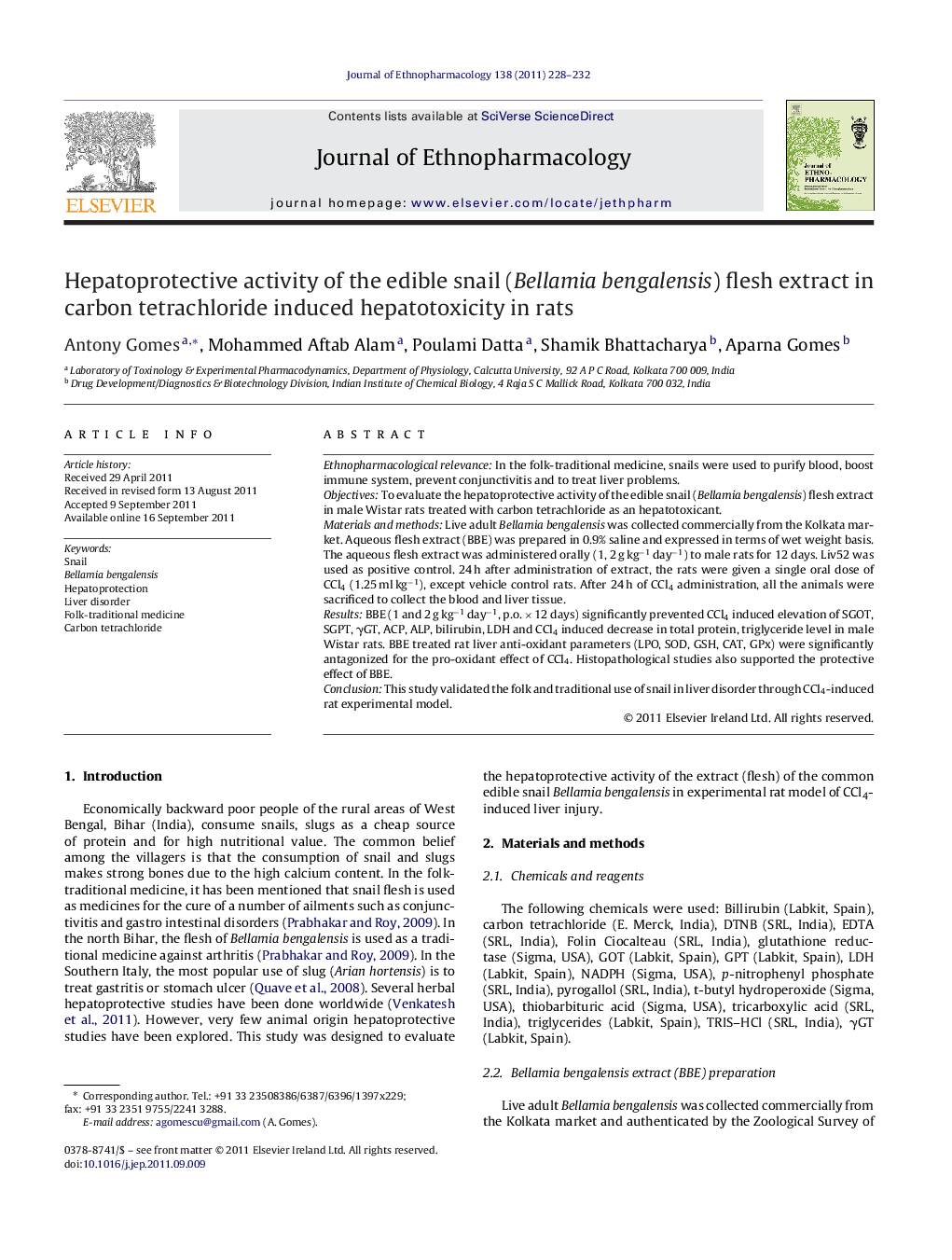| Article ID | Journal | Published Year | Pages | File Type |
|---|---|---|---|---|
| 5839260 | Journal of Ethnopharmacology | 2011 | 5 Pages |
Abstract
Ethnopharmacological relevanceIn the folk-traditional medicine, snails were used to purify blood, boost immune system, prevent conjunctivitis and to treat liver problems.ObjectivesTo evaluate the hepatoprotective activity of the edible snail (Bellamia bengalensis) flesh extract in male Wistar rats treated with carbon tetrachloride as an hepatotoxicant.Materials and methodsLive adult Bellamia bengalensis was collected commercially from the Kolkata market. Aqueous flesh extract (BBE) was prepared in 0.9% saline and expressed in terms of wet weight basis. The aqueous flesh extract was administered orally (1, 2 g kgâ1 dayâ1) to male rats for 12 days. Liv52 was used as positive control. 24 h after administration of extract, the rats were given a single oral dose of CCl4 (1.25 ml kgâ1), except vehicle control rats. After 24 h of CCl4 administration, all the animals were sacrificed to collect the blood and liver tissue.ResultsBBE (1 and 2 g kgâ1 dayâ1, p.o. Ã 12 days) significantly prevented CCl4 induced elevation of SGOT, SGPT, γGT, ACP, ALP, bilirubin, LDH and CCl4 induced decrease in total protein, triglyceride level in male Wistar rats. BBE treated rat liver anti-oxidant parameters (LPO, SOD, GSH, CAT, GPx) were significantly antagonized for the pro-oxidant effect of CCl4. Histopathological studies also supported the protective effect of BBE.ConclusionThis study validated the folk and traditional use of snail in liver disorder through CCl4-induced rat experimental model.
Related Topics
Health Sciences
Pharmacology, Toxicology and Pharmaceutical Science
Pharmacology
Authors
Antony Gomes, Mohammed Aftab Alam, Poulami Datta, Shamik Bhattacharya, Aparna Gomes,
